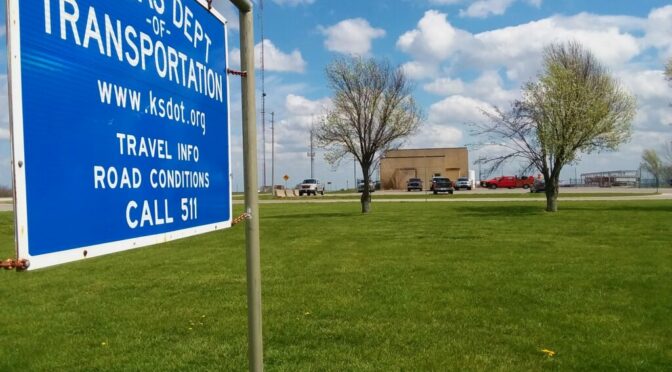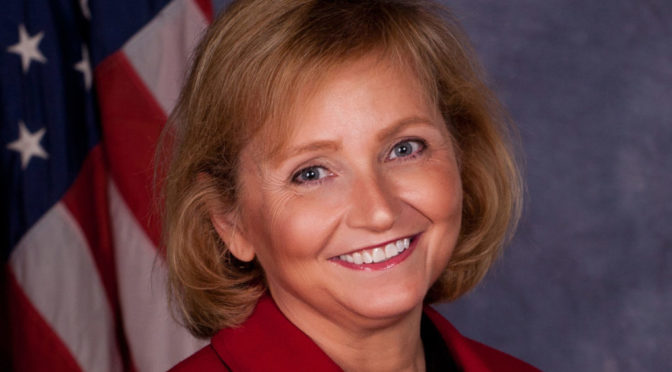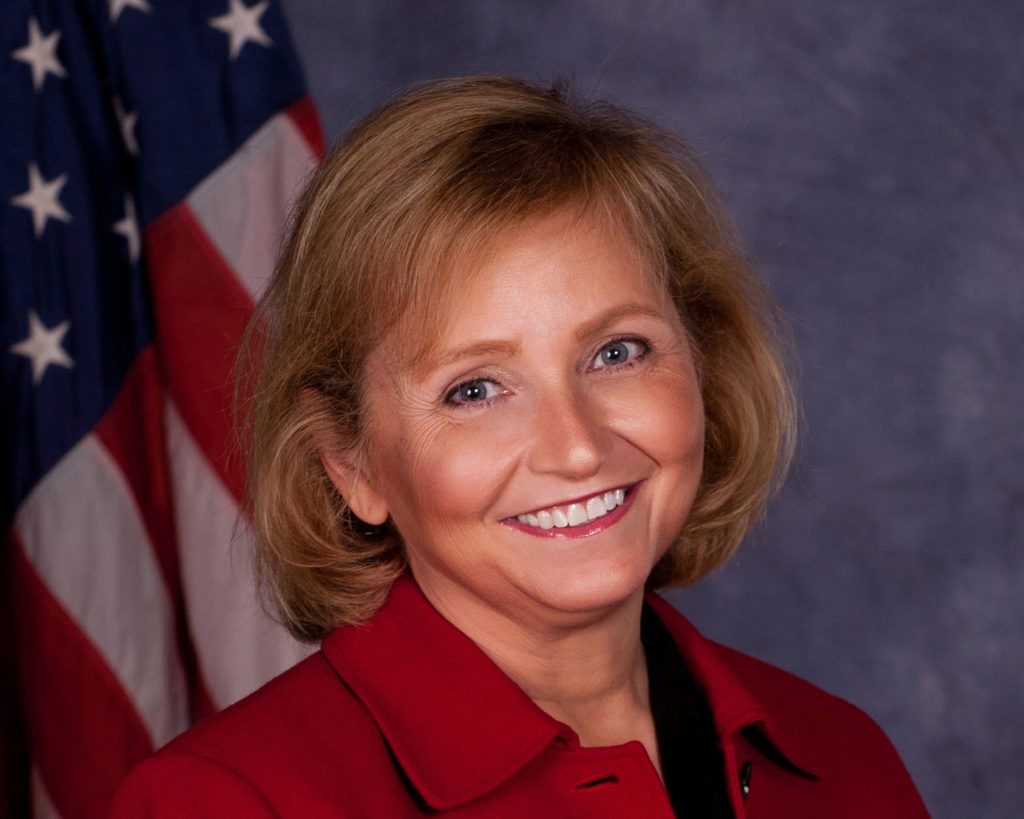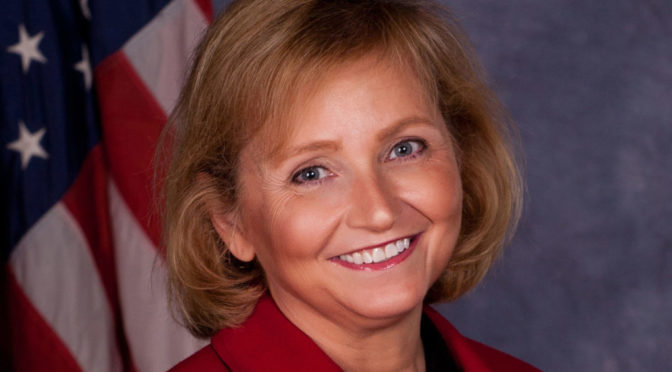|
Category Archives: Kansas
Infant Formula Shortage Recommendations
Governor Laura Kelly Announces Actions to Assist Kansans Affected by Infant Formula Shortage
TOPEKA – Governor Laura Kelly today announced actions her administration has taken to ease the burden on Kansas families affected by the nationwide infant formula shortage. Since February, the Kelly Administration has been working with state agencies and federal partners to address the issue.
“I have directed all state agencies to do everything in their power to help Kansans access vital infant formula,” Governor Laura Kelly said. “From increasing flexibility to helping eliminate barriers at check-out, my Administration is doing what is within our power to ease the impact of the national infant formula shortage on Kansas Families.”
Governor Kelly has instructed agencies to work with their federal counterparts to expedite relief. To that end, the Kansas Department of Health and Environment (KDHE) has taken a leading role in working with the White House, the National Governors Association, the United States Department of Agriculture, the Food and Drug Administration, and the National Women, Infants, and Children (WIC) Association, and private industry to help coordinate efforts and eliminate red tape.
KDHE has implemented a series of waivers to provide the maximum flexibility in making more infant formula products – including Ready to Feed (RTF) formulas – available to Kansans and has approved additional formula products for use by Kansas WIC families. The agency is also working with the Kansas Department for Children and Families on increased communication efforts to inform the public of possible alternatives.
The Kelly Administration, including KDHE, recommends the following to families struggling to find the formula they need to feed their child:
- Call your OBGYN or pediatrician to see if they can provide any resources to access formula or for suggestions on an alternative formula to meet their infant’s health needs.
- Switch to another brand or type of formula that is available if recommended by the infant’s physician.
- Contact their local WIC agency to see if the infant is eligible for WIC benefits.
- Contact smaller stores and drugstores that carry formula to see if they have products in stock.
- Kansas WIC families should contact their local health department or health agency for assistance in receiving substitute products when needed.
“KDHE is committed to ensuring infants in Kansas have access to formula,” Secretary Janet Stanek said. “Since February, we have been working to do what is possible, within our authority, to provide relief for Kansans. We urge all impacted families to follow these recommendations and stay up-to-date with information to care for their family’s needs.”
Families are strongly encouraged not to unnecessarily stockpile formula in such a way that would cause further strain on the supply chain.
KDHE strongly discourages the use of toddler formula to feed infants or watering down formula or trying to make infant formula at home.
The Kelly Administration will continue to monitor the situation and provide further updates as they become available. For more information about WIC eligibility, visit the KDHE WIC website. Find the approved substitution formula list for WIC families here.
KDOT employees celebrate service anniversaries
|
|
Improving State Services for Vulnerable Kansans
Governor Laura Kelly Signs Bill Making Key Investments to Improve State Services for Vulnerable Kansans
~~Legislation Enables State Universities to Hold Tuition Flat~~
TOPEKA – Governor Laura Kelly today announced she has signed bipartisan House Bill 2510, which makes key investments in education, economic development, mental health, senior services, and our veterans. HB 2510 also makes historic levels of funding to state universities, enabling them to freeze tuition and knock down barriers to higher education.
“This budget delivers on commitments I made in January to improve access to services for vulnerable Kansans,” Governor Laura Kelly said. “I am proud of our continued bipartisan work to restore and enhance vital state services – responsibly paid for through our strong economic growth.”
HB 2510 ensures funding for mental health initiatives like 9-8-8, the state’s new suicide prevention hotline; increases funding to grow and enhance the care provided by community mental health centers; and expands mental health services in regions like South-Central Kansas.
It also includes many initiatives that build upon the Kelly Administration’s strong record of improving the child welfare system and fully funds a veterans’ home in Northeast Kansas – making it possible for those who have served their country to receive long-term care closer to home.
“This budget will improve services for Kansans in a responsible way, building a sustainable foundation for years to come,” Senator Oletha Faust-Goudeau, District 29, said. “I’m especially proud of the provision that requires the Department of Children and Families to use performance-based contracts, which will ensure that our child advocates are focused on providing satisfactory care for children and families in need, rather than increasing their intake loads. Because of this policy, Kansas children will receive the care they need and deserve, and our state will be able to hold providers accountable for their work.”
This bill also directs a portion of federal money to state universities, community colleges, and technical colleges, enabling them to freeze tuition and make higher education more affordable for students from a range of backgrounds.
“Our historic, $1 billion investment in higher education will make it possible for universities to freeze tuition, continuing the streak of low-to-no tuition growth under my Administration,” Governor Kelly said.
“Due to our state’s recent economic growth, we had a unique opportunity to make historic one-time investments to modernize our higher education system and this budget does that,” Senator Tom Hawk, Ranking Minority Member on the Senate Ways and Means Committee, said. “Funding for our whole education system, including higher education, should send a message to all prospective students, faculty, and the business community that Kansas stands ready to provide the educated workforce that our economy needs.”
“By investing in our community colleges, technical colleges, and universities, this budget will expand our workforce and economic development potential as a state.” Representative Kathy Wolfe-Moore, Ranking Minority on House Appropriations, said. “From Kansas City and Pittsburg to Garden City and Hays, we are updating our campuses and expanding our capacity to make sure our students are ready to step up to the plate when they graduate.”
Another portion will direct one-time funding toward housing and economic development projects.
“This budget not only provides funding for key economic development initiatives, it will also jumpstart housing development in communities that are ready to grow like my hometown of Salina.” Senator J.R. Claeys, Vice Chair of Senate Ways and Means, said. “As company after company announces expansions and new investment, it’s clear that Kansas is a great place to do business and raise a family, and our private housing developers and local stakeholders are ready to get to work to make sure communities across the state have the quality housing needed to attract young workers and their families.”
In addition, HB 2510 ensures all state public employees enjoy at least a 5% pay increase this year, following a previous recommendation from the Governor. It also restores multiple agencies to the across-the-board pay increase, including the Office of the State Fire Marshal, the Board of Indigent Defense Services, and all employees at 24/7 facilities.
“As they do every year, Kansas state employees work hard to deliver exceptional service to the people of Kansas in some of the toughest jobs in the state,” Sarah LaFrenz, President of the Kansas Organization of State Employees, said. “We appreciate the Governor’s leadership and the Legislature’s bipartisan support of the base pay, differential, and market rate increases included in the budget this year for state employees. Funding these pay increases is such an essential step in helping curb the staffing crises at state facilities, compensating these workers for their hard and necessary work, and making our communities safer.”
Below please find the message from the Governor regarding House Bill 2510:
House Bill 2510 represents additional progress toward fulfilling many of the priorities that I set forth in January and that have been made possible only through our bipartisan work together over the past four years. Building on House Substitute for Substitute for Senate Bill 267, this bill provides additional investments in higher education, economic development, mental health, senior services, and veterans while leaving sufficient funding to provide over $1 billion in tax relief to Kansans through the legislation that I have signed to cut property taxes and axe the state’s sales tax on groceries.
Some of the key investments in this legislation include improved access to mental healthcare, increased funding for senior nutrition, expanded training opportunities to prevent child abuse, and measures that build on our successful work to reduce the number of children who enter the foster care system. This bill includes additional investments in our regional universities and community and technical colleges, which are critical to our efforts to expand our workforce in the state of Kansas. And this budget ensures that all state employees will receive a pay increase of at least 5% this year in recognition of their service to the state.
Finally, due to our strong economic growth and unprecedented ending balances, this budget will allow us to pay off over $1 billion in debt over the next year.
Therefore, pursuant to Article 2, Section 14(b) of the Constitution of the State of Kansas, I hereby return House Bill 2510 with my signature, except for the item enumerated below.
State Board of Regents—Proviso Allowing Universities to Raise Tuition
Section 36(b) has been vetoed in its entirety.
In my initial budget, I recommended $45.7 million in operating grant funding to higher education with the understanding that universities would freeze tuition. In addition to that, I allocated $23.9 million in funding for salaries. While the original operating grant funding has been reduced to an increase of $37.5 million in the final passed budget, overall, higher education in the state of Kansas is set to receive $1 billion this fiscal year. This is a historic investment that I am proud to support by approving the additional higher education funding included in HB 2510.
As a result of this significant infusion of new funding, I believe that the Regents institutions will be able to continue to hold tuition flat, making college more affordable for Kansans of all backgrounds. This is especially important if we, as a state, are going to provide the workforce needed to fully actualize the benefits and opportunities of our recent economic growth.
###
Governor Laura Kelly Vetoes Three Bills
TOPEKA – Today, Governor Laura Kelly vetoed Substitute for Senate Bill 34, House Bill 2387, and House Bill 2252, and signed Senate Bill 313.
The following veto message is from Governor Laura Kelly regarding her veto of Substitute for Senate Bill 34:
I have consistently opposed vaccine passports and mandating any COVID-19 vaccination. However, this bill goes beyond COVID-19 and implements a one-size-fits-all approach for all infectious diseases. It significantly limits any government entity’s response to any infectious disease outbreak.
As a result, this legislation creates significant safety concerns for workers, for employers, for the economy, and for all Kansans. Schools could not adequately respond to an outbreak of measles in a classroom, and manufacturing facilities could not respond to a tuberculosis outbreak.
Beyond that, our agricultural sector could not continue to fight the Highly Pathogenic Avian Influenza (HPAI). We have a responsibility to protect our critically important agricultural industry and the farmers and ranchers who feed the nation.
We need to be prepared for what’s down the road to best protect Kansans. This bill puts the safety of all Kansans and our economy at risk.
Therefore, under Article 2, Section 14(a) of the Constitution, I hereby veto Substitute for Senate Bill 34.
The following veto message is from Governor Laura Kelly regarding her veto of HB 2387:
Having a transparent, competitive bidding process is key to ensuring that our state contracts provide the most value to Kansas taxpayers while using the latest technology and best practices. This is not only good for the State of Kansas, but also for our current MCOs and the people they serve.
The language included in HB 2387 regarding the current MCO contracts is a product of closed-door dealings to push legislation that did not have a single proponent. There is little question that this effort is fraught with legal issues and jeopardizes our Medicaid program. HB 2387 prohibits the state Medicaid agency from pursuing the state’s independent procurement process and, by doing so, functionally provides the current MCOs with a no-bid, multi-billion-dollar, contract.
We must favor transparency and fair competition over attempts to re-insert corruption into the state contracting process.
Therefore, under Article 2, Section 14(a) of the Constitution, I hereby veto HB 2387.
The following veto message is from Governor Laura Kelly regarding her veto of House Bill 2252:
Elected officials must be able to perform their job duties effectively and efficiently. By prohibiting executive branch officers, including the Governor, Secretary of State, and Attorney General, from entering into agreements regarding the enforcement of election law, this bill prevents the executive branch from fulfilling its constitutional duties. House Bill 2252 represents an overreach by the legislative branch that defies the separation of powers – a principle fundamental to a working democracy. If passed, it would also lead to costly litigation at the expense of Kansas taxpayers.
Therefore, under Article 2, Section 14(a) of the Constitution, I hereby veto House Bill 2252.
Governor Kelly also signed Senate Bill 313 which provides for the use and regulation of autonomous motor vehicles and establishes the Autonomous Vehicle Advisory Committee. More information about SB 313 can be found here.
KS Sports Wagering Legalized
Governor Laura Kelly Legalizes Sports Wagering in Kansas
~~Kelly Signs Bill Allowing Kansans to Place Sports Bets on Mobile Apps, at Casinos, and Other Specific Venues~~
TOPEKA – Governor Laura Kelly today signed bipartisan legislation, Senate Bill 84, allowing Kansans to legally participate in sports wagering in the state. SB 84 also allows state casinos to use digital platforms and create sportsbooks.
“Legalizing sports betting will bring more revenue to our state and grow our economy,” Governor Laura Kelly said. “This is another mechanism that casinos, restaurants, and other entertainment venues can now utilize to attract Kansans to their establishments.”
“I was excited to pass sports wagering in Kansas, it’s something that Kansans are already doing, and it will bring additional tax revenue to our state to help with our needs,” Senator Rob Olson, Chair of the Senate Federal and State Affairs Committee, said. “My constituents have pushed for this legislation for years, and now, the next time we have a significant sporting event in our state, Kansans will be able to bet on their hometown team.”
“We have heard from our constituents for years about the need for a sports wagering program here in Kansas, both for the value it will bring to their lives and for the revenues it will generate for our state,” Senator Oletha Faust-Goudeau, Ranking Member of the Senate Federal and State Affairs Committee, said. “I’m proud to have contributed to this package that will do just that and revitalize my community by creating jobs in Wichita.”
In addition, SB 84 allows venues such as restaurants and nonprofit fraternal or veterans organizations to hold sports wagering.
SB 84 preserves tribal sovereignty, allowing the negotiation of a new or existing gaming compact regarding sports wagering.
More information about SB 84 can be found here.
###
KS Expands Computer Science Education
Governor Laura Kelly Signs Bill Expanding Computer Science Education in Kansas Schools
~~This Legislation Helps Students Transition from Career and Technical Education Programs into the Workforce~~
TOPEKA – Today, Governor Laura Kelly signed bipartisan House Bill 2466 to promote computer science education in Kansas schools and provide additional funding for current and aspiring teachers to receive training in computer science programs. HB 2466 also establishes a pilot program that covers credential exam costs and assists career and technical education students in their transition to the workforce.
“By expanding computer science education and creating this transition program, we can better retain the skilled workforce Kansas produces through our K-12 schools,” Governor Laura Kelly said. “In addition, it signals to companies looking to build or expand their business that Kansas is the place to do it.”
HB 2466 provides scholarships for educators in rural areas and underrepresented socioeconomic groups to obtain computer science education training.
“HB2466 will bring much needed resources and training to our teachers,” Representative Steve Huebert, District 90, said. “With that, more classes will be offered, allowing students to gain the computer science skills they need for today’s workforce demands.”
More information about HB 2466 can be found here.
Governor Kelly also signed the following bills:
HB 2138
Provides for the use of electronic poll books in elections and the approval of such books by the secretary of state, requires all voting systems for elections to use individual voter-verified paper ballots with a distinctive watermark, requires the secretary of state and local election officers to develop an affidavit to be signed by election workers regarding the handling of completed ballots, requires audits of any federal, statewide or state legislative race that is within 1% of the total votes cast and requires randomized audits of elections procedures used in four counties in even-numbered years, requires a county election officer to send a confirmation of address when there is no election-related activity for any four-calendar year period and exempts poll workers from certain election crimes.
Legislative Update by State Senator Caryn Tyson
May 6, 2022
The legislature is on another break until May 23. The delayed schedule is a response to the Congressional map and now the state senate map being challenged in court.
Meat Labeling Conference Committee Report (CCR) 261 will stop the use of the word “meat” when a product at the grocery store does not contain meat. The bill does not address the use of the word “meat” in restaurants or the use of the word “milk”, but it is a step in consumer protection and forcing accurate labeling of non-meat products. The CCR passed unanimously.
Taxes collected were $175 million above estimates for April. Last year the Governor vetoed income tax cuts, calling them reckless. The legislature overrode the veto and the tax cuts were implemented. Taxes collected are at an all-time high. A majority of legislators voted to pay down some debt (KPERS unfunded liability), which I supported. However, a majority of legislators also voted to increase spending and put $750 million in reserves – so that government can spend it at a later date. I do not support allowing government to grow, especially at that pace.
As Chairman of the Senate Tax Committee, I am grateful for the hard work by the Senate and the House to get some good tax legislation passed this year! Here are some of the highlights: property tax freeze for low income seniors and disabled veterans, tax credits for teachers who purchased school supplies with their own money, removing state sales tax on delivery and postage costs, doubling personal income tax exemption for 100% disabled veterans from $2250 to $4500, and many other provisions. And of course, after many years of trying, we finally passed legislation that will bring the state sales tax on groceries to zero. These are big wins for Kansans and I am grateful for the teamwork between the House and Senate to the tax policies passed with veto proof majority.
In the next day of session, May 23, watch for CCR 2597 which would amend income tax, sales tax, and would enact the COVID-19 Retail Storefront Property Tax Relief Act, providing partial property tax relief for businesses who were restricted at their storefront during the Governor’s COVID-19 shut down. The legislation would gradually remove state income tax on Social Security, increase the standard deduction based on inflation, remove state sales tax on electric and other utilities for businesses (homeowners are already exempt), and other tax provisions to help return record tax collections to Kansas taxpayers.
There was good teamwork and leadership this year that has brought good tax policy to fruition, but there is still work to be done on May 23.
K-12 funding for each Fiscal Year (FY) 2022, 2023, 2024 is over $6 billion in CCR 2567. There was some policy items in the CCR, most notably, adoption of Open Enrollment, allowing students to move between schools provided the receiving school has the capacity to accept the student transferring. There are several questions with the legislation. It was in a budget bill and the Governor can line item veto budgets. Does it apply to this bill? The CCR passed the Senate 24 to 14. I did not support the major spending increase. I did support the school transfer version of the bill and had voted Yes when it was a standalone bill.
More legislation that passed can be found at www.KSLegislature.org.
It is an honor and a privilege to serve as your 12th District State Senator.
Caryn
Drug Overdose Epidemic Survey
The Kansas Prescription Drug and Opioid Advisory Committee is conducting a public opinion survey regarding the drug overdose epidemic in Kansas. The purpose of this survey is to assess community needs regarding overdose prevention and response resources. These data will be used to develop a comprehensive drug overdose prevention plan for Kansas. Please disseminate among your personal and professional networks. The survey can be found here:
https://www.surveymonkey.com/
Legislative Update by State Senator Caryn Tyson
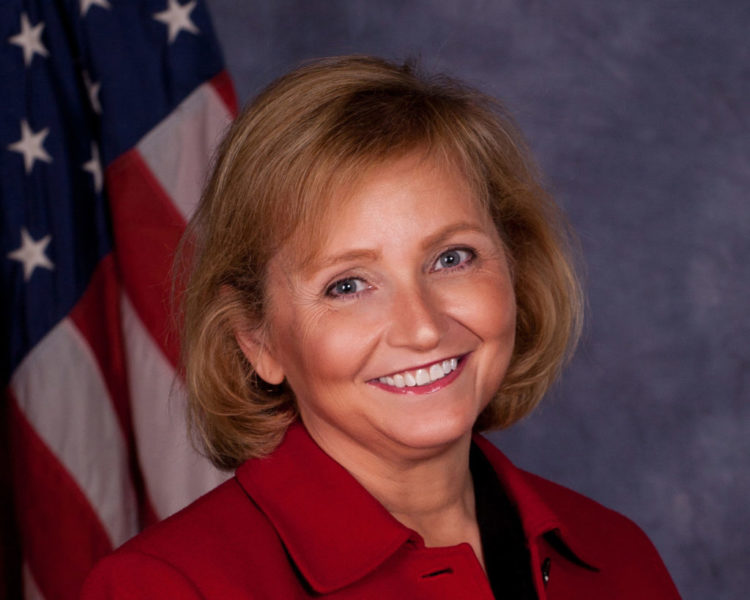
April 30, 2022
The legislature began the 2022 veto session on April 25. It has been an unusual year and the schedule confirms this since the legislature will return May 23 and the final day of session will not be until June. The last day is usually in mid-May. The delayed schedule is a response to the Congressional map being challenged in court.
Sales Tax on Groceries, Conference Committee Report (CCR) 2106, passed the Senate unanimously and the House with super-majority. January 1, 2023, the state sales tax on groceries will decrease from 6.5% to 4%, in 2024 it will decrease to 2%, and in 2025 it will be 0%. The Governor’s plan never cut “sales tax on food”. It was sales tax on groceries. Groceries are to be defined as non-prepared foods with a few quirky items.
My updates do tend to focus on tax. As the Senate Tax Chairman, I have worked diligently to lower taxes in Kansas. Someone in the Capital commented to me that we wouldn’t have passed any tax legislation this year if I would not have been working on it. We have had some major wins this year, including lowering property tax for homeowners. (Hopefully, local governments will not take the savings from you by increasing local taxes.) The Governor took credit for it even though she never worked on it.
The legislature passed a budget that puts over $750 million in reserve. That money should be returned to the taxpayers – Kansans need it with inflation and skyrocketing prices. Let’s cut more taxes by passing CCR 2597. It would remove income tax on Social Security, increase the standard deduction based on inflation, and implement other common-sense tax solutions for Kansans.
Fairness in Women’s Sports, Conference Committee Report (CCR) 160, would have ensured participation in women’s sports is for biological women. For a second year, the Governor vetoed the legislation. The Senate had the votes for an override. However, the House fell three votes short of an override. I supported the legislation and the override. It will be interesting to see how much impact this has on 2022 elections.
The Parents’ Bill of Rights, CCR 58, would have been a first step for addressing Critical Race Theory (CRT), age-appropriate material, and transparency for parents of students attending elementary or secondary school in this state. The Governor vetoed the legislation. The Senate overrode the veto but the House fell short by 12 votes. I had introduced a bill banning CRT and the teaching of inaccurate history. Due to social pressure the bill didn’t even get a hearing. The Parents’ Bill of Rights was the only legislation to pass out of committee this year.
The Governor vetoed Welfare Reform CCR 2448, requiring able-bodied adults without dependents to complete an employment and training program in order to receive food assistance. The House and Senate were able to override this veto. I voted Yes.
A Constitutional Amendment will be on the November 2022 ballot, allowing voters to decide if the Kansas Constitution should be amended to require County Sheriffs to be elected, except for Riley County.
More legislation that passed can be found at www.KSLegislature.org. I’ll include more items in a later update.
It is an honor and a privilege to serve as your 12th District State Senator.
Caryn
KDOT requests comments on public involvement plan
|
|
|
KDHD Announces Community Health Worker Certification
Kansas Department of Health and Environment Supports New Community Health Worker Certification
TOPEKA – The Kansas Department of Health and Environment (KDHE) and the Kansas Community Health Worker Coalition are excited to announce the new Community Health Worker Certification. This certification is the first in the state to recognize the valuable role that Community Health Workers (CHWs) play in communities as they serve as a link between health and social services and communities to facilitate access to services and improve the quality and cultural competence of service delivery.
“CHWs play an integral role in patient-centered health care teams. They improve care accessibility and health outcomes. The diversity of backgrounds, skills and experiences CHWs bring is a strength,” said David Jordan, President and CEO of United Methodist Health Ministry Fund. “The new certification process standardizes Community Health Worker education and training. Ultimately, this will strengthen community health workers’ future in Kansas. The Health Fund is proud to have partnered with the Kansas Community Health Worker workgroup, KDHE and the Kansas Community Health Worker Coalition to standardize the role of CHWs in Kansas.”
A Certification Task Force was formed out of a need to investigate pathways for certification and started in the coalition’s Sustainability Committee. Over the past five years, the development of this certification has been inclusive and transparent. More than 40 individuals from the Kansas Community Health Worker Coalition and beyond were involved in the process.
“Having a certification process for CHWs is key to expanded career options and future opportunities,” said Stefanie Olson, KDHE CHW Section Director.
“This certification also provides CHWs who serve in their communities a way to validate and build their skills in individual and community capacity by increasing health knowledge and self-sufficiency through a range of activities such as outreach, community education, informal counseling, social support and advocacy” said Alma Vargas, KS CHW Coalition Executive Co-Chair. “It also offers employers of CHWs – particularly health care providers with a key support in these times of increased need for skilled health professionals. This statewide recognized certification can distinguish CHWs from their peers and can help them as they work towards other goals.”
Is this certification for you? Certification requires:
- High School Diploma or High School Equivalent. Exceptions may be made.
- Completion of one of these two pathways.
- Education Pathway: Applicant must complete the KDHE approved CHW training program through the Kansas CHW Coalition or a certified Kansas CHW education provider.
- Work Experience Pathway: Applicant must complete 800 hours over three years plus three letters of recommendation to document work and/or volunteer experience.
Given CHWs important role in advancing health equity and addressing social determinants of health, these efforts could not have come at a better time.
Visit the Community Health Worker Coalition to learn more about and apply for the certification, scholarships are available. Health topic information and other resources to support CHWs can be found on both the KDHE and CHW websites. Join KDHE on Thursday, June 9 at Wichita State University, Rhatigan Student Center at 9 a.m. for the annual Kansas Community Health Worker Symposium. Sponsorship and scholarship opportunities are available.

